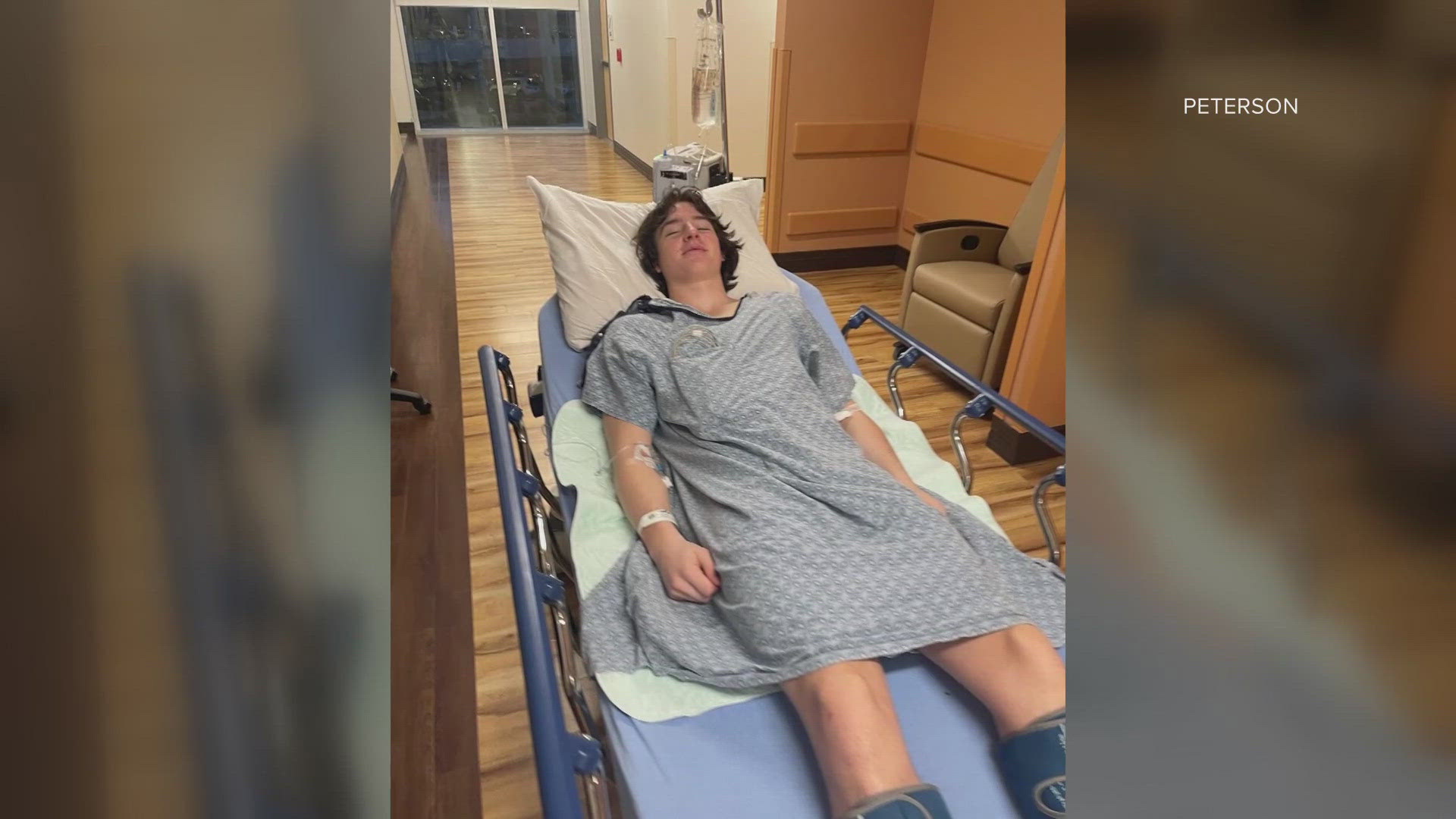GILBERT, Ariz. — Valley medical experts are tracking a rise in Valley Fever cases in Arizona. Dr. Wassim Ballan, the Division Chief of Infectious Diseases at Phoenix Children's said they're seeing almost double the number of Valley Fever cases in children and young adults compared to this time last year.
The illness is caused by a fungus that lives in dirt in Arizona. Ballan said it spikes two times a year in the Grand Canyon State.
Those are with the winter rains and now, with the summer monsoon. Ballan added they’re not sure if the spike is because of Arizona's growing population or because of hotter and drier weather conditions.
Symptoms of the lung infection that Valley Fever causes, are similar to pneumonia. They can include fatigue, cough, fever, headache, shortness of breath, night sweats, muscle aches and a rash, according to the CDC.
The symptoms can last for a few weeks to a few months. Ballan said more than 60 percent of people who get the infection do not get sick from it and don’t have symptoms. But there are cases where patients end up in the hospital needing treatment, and it can be hard to diagnose.
“In general the initial presentation of patient is very similar to a lot of other respiratory infections," Ballan said. "This is why we want to remind everyone to have that on their radar. I’m not saying every kid or every patient who has a fever and some respiratory illness needs to automatically be tested for Valley Fever, but that should be in mind especially if they’re not getting better.”
Gilbert mom Amy Peterson is raising awareness about the potential severity of Valley Fever after it made her son very sick.
Peterson said before getting sick with Valley Fever, her son Noah, was the image of health and fitness for a 17-year-old. Noah was a star Highland High School basketball player. But at the end of 2021, she said he woke up in the middle of the night in a lot of pain.
Peterson rushed Noah to the ER. For two weeks, she said Noah was in and out of the hospital, saw 12 different doctors, was misdiagnosed, was given medicine that made him sicker, lost 20 pounds and couldn’t breathe.
Finally, just weeks before Christmas, Peterson said he was diagnosed with Valley Fever and put on anti-fungal medicine to help him get better. Even after diagnosis and treatment, he still had a long road to recovery.
“It was devastating, it ravaged his body," she said. "He went from being a high school basketball recruit, to not being able to get out of bed and walk to the kitchen without labored breathing.”
Peterson said it took six to eight months after beginning proper treatment before Noah was stable, gaining weight and could breathe and workout again. Noah had to take a year off from playing basketball. During that time, Peterson said Noah cheered from the sidelines while he recovered. Then, in his senior year, he got to take the court, helping his team win the 6A state basketball championship.
“And it was one of those moments that I still, I’ll start crying right now," she explained. "I look back at pictures and I get so emotional. All of these boys, they’re a team. They fought so hard to get there. And his story in particular with how hard he had to fight to get back and then to have this great success at the end of it. It was super inspiring.”
Noah is healthy now and is serving a mission for his church, but Valley Fever is something he will have to monitor for the rest of his life. She encourages everyone to know the symptoms, document illnesses closely and advocate for their family members if they’re sick. Peterson said she's frequently called by other Valley parents who are worried their children may have come down with Valley Fever.
Ballan said while most people don’t feel the illness, a small group can get really sick, and the illness can be tricky to pinpoint.
“It’s not a straightforward infection like an ear infection where you get your course of antibiotics and you’re done," he stated. "Depending on the patient and depending on the situation, the infection can get complicated and can sometimes be life-threatening."
Ballan also added there is no way to avoid exposure to Valley Fever living in Arizona, but the degree of exposure varies whether indoors, or outside around dust, like at a construction site. He added, if you have mild symptoms, you can go to your primary care provider.
If you’re not getting better, you can ask for a Valley Fever test and seek further treatment, depending on the severity. Serious cases can end up in the hospital.
>> Download the 12News app for the latest local breaking news straight to your phone.
12News on YouTube
Catch up on the latest news and stories on the 12News YouTube channel. Subscribe today.


